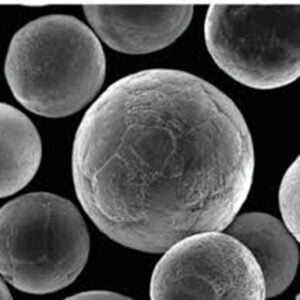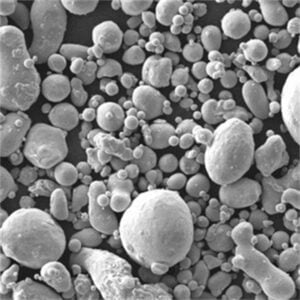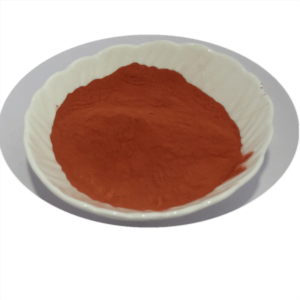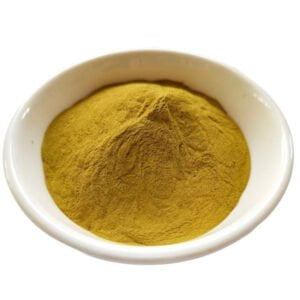Przegląd
Have you ever wondered what makes modern technologies more durable, flexible, and efficient? One key component is advanced materials like Ni4Ti3, an intermetallic compound within the broader family of Nickel Titanium alloys (often referred to as Nitinol). This compound has unique properties that make it indispensable in various high-tech applications. In this article, we will dive deep into the fascinating world of Ni4Ti3, exploring its types, composition, properties, applications, and more. Get ready for an engaging journey through the intricate details of this remarkable material.
What is Ni4Ti3?
Ni4Ti3 is a specific intermetallic phase of Nickel Titanium (Nitinol), known for its exceptional mechanical properties and unique phase transformations. But what makes it stand out? It’s the precise composition and the way the atoms are arranged that endow it with unique characteristics. This phase is crucial in controlling the shape memory effect and superelasticity in Nitinol alloys.
Why is Ni4Ti3 Important?
In the world of advanced materials, having control over material properties is like having a superpower. Ni4Ti3 allows engineers and scientists to fine-tune the properties of Nitinol alloys, making them suitable for a wide range of applications—from medical devices to aerospace components. This ability to manipulate and enhance material properties places Ni4Ti3 at the heart of technological innovations.

Composition and Properties of Ni4Ti3
Understanding the composition and properties of Ni4Ti3 is like getting to know the DNA of a super athlete. Let’s break down these aspects in detail.
Skład
The primary components of Ni4Ti3 are nickel (Ni) and titanium (Ti). However, the magic lies in the specific atomic ratio and the resultant crystal structure. Here’s a detailed table summarizing the composition:
| Element | Symbol | Atomic Percentage |
|---|---|---|
| Nikiel | Ni | 57.14% |
| Tytan | Ti | 42.86% |
Właściwości
What sets Ni4Ti3 apart from other materials are its remarkable properties. These include:
- Efekt pamięci kształtu: The ability to return to a pre-defined shape upon heating.
- Superelastyczność: The capacity to undergo large strains and recover their original shape upon unloading.
- Wysoka odporność na korozję: Excellent resistance to corrosion, making it suitable for medical and marine applications.
- Biokompatybilność: Safe for use in medical implants due to its compatibility with human tissue.
Charakterystyka
To get a comprehensive understanding, let’s look at the detailed characteristics of Ni4Ti3:
| Charakterystyka | Opis |
|---|---|
| Struktura krystaliczna | Ordered intermetallic phase with a specific Ni:Ti ratio. |
| Phase Transformation | Exhibits martensitic transformations critical for shape memory and superelasticity. |
| Stabilność termiczna | Stable over a range of temperatures, ensuring reliability in various applications. |
| Wytrzymałość mechaniczna | High tensile strength and fatigue resistance. |
| Przewodność elektryczna | Moderate electrical conductivity, useful in certain electronic applications. |
Zastosowania Ni4Ti3
Wszechstronność Ni4Ti3 makes it a material of choice in various fields. Here’s a closer look at where it’s used:
Urządzenia medyczne
One of the most significant applications of Ni4Ti3 is in the medical field. Its biocompatibility and unique mechanical properties make it ideal for medical implants and devices.
- Stenty: Used in cardiovascular treatments to keep arteries open.
- Orthodontic Archwires: Employed in braces for their superelastic properties.
- Bone Plates and Screws: Used in orthopedic surgeries for bone fixation.
Komponenty lotnicze i kosmiczne
In the aerospace industry, materials that can withstand extreme conditions are crucial. Ni4Ti3 fits the bill perfectly.
- Siłowniki: Used in adaptive control systems for their shape memory properties.
- Fasteners and Couplings: Provide reliable performance under high-stress conditions.
- Seals and Gaskets: Ensure airtight and flexible sealing solutions.
Elektronika użytkowa
Even in everyday electronics, Ni4Ti3 finds its place due to its durability and unique properties.
- Flexible Displays: Used in screens that can bend and flex without breaking.
- Smart Wearables: Incorporated in devices that require flexibility and durability.
- Connector Pins: Provide reliable electrical connections in various gadgets.
Zastosowania przemysłowe
Beyond the high-tech and medical fields, Ni4Ti3 is also valuable in several industrial applications.
- Robotyka: Employed in robotic joints and actuators for their flexibility and strength.
- Motoryzacja: Used in various components to enhance performance and durability.
- Sektor energetyczny: Implemented in systems requiring high fatigue resistance and reliability.
Table: Detailed Applications of Ni4Ti3
| Przemysł | Zastosowanie | Benefit of Ni4Ti3 |
|---|---|---|
| Urządzenia medyczne | Stenty | Biocompatibility, flexibility |
| Orthodontic Archwires | Superelastyczność | |
| Bone Plates and Screws | Wysoka wytrzymałość, odporność na korozję | |
| Komponenty lotnicze i kosmiczne | Siłowniki | Shape memory properties, reliability |
| Fasteners and Couplings | Performance under high stress | |
| Seals and Gaskets | Airtight and flexible sealing solutions | |
| Elektronika użytkowa | Flexible Displays | Durability, flexibility |
| Smart Wearables | Flexibility, durability | |
| Connector Pins | Reliable electrical connections | |
| Zastosowania przemysłowe | Robotyka | Flexibility, strength |
| Motoryzacja | Enhanced performance, durability | |
| Sektor energetyczny | High fatigue resistance, reliability |
Rodzaje Ni4Ti3 Modele proszkowe
When it comes to working with Ni4Ti3, different metal powder models are available, each tailored for specific applications and requirements. Here’s a list of some prominent models with their descriptions:
1. Ni4Ti3-100
Ni4Ti3-100 is a standard model known for its fine particle size and high purity, making it ideal for precision applications in the medical field.
- Wielkość cząstek: 10-50 microns
- Czystość: 99.9%
- Zastosowania: Medical implants, precision instruments
2. Ni4Ti3-200
Ni4Ti3-200 is designed for aerospace applications where strength and reliability are paramount.
- Wielkość cząstek: 20-60 microns
- Czystość: 99.8%
- Zastosowania: Aerospace components, actuators
3. Ni4Ti3-300
This model offers enhanced mechanical properties, suitable for high-stress industrial applications.
- Wielkość cząstek: 15-55 microns
- Czystość: 99.7%
- Zastosowania: Industrial robotics, automotive components
4. Ni4Ti3-400
Ni4Ti3-400 features ultra-fine particles, providing exceptional detail and performance in consumer electronics.
- Wielkość cząstek: 5-30 microns
- Czystość: 99.9%
- Zastosowania: Flexible displays, smart wearables
5. Ni4Ti3-500
This model is tailored for high-performance energy applications, offering superior fatigue resistance.
- Wielkość cząstek: 10-40 microns
- Czystość: 99.85%
- Zastosowania: Energy sector components, high-fatigue applications
6. Ni4Ti3-600
Ni4Ti3-600 is optimized for additive manufacturing, ensuring high-quality 3D printed components.
- Wielkość cząstek20-50 mikronów
- Czystość: 99.9%
- Zastosowania: 3D printing, custom manufacturing
7. Ni4Ti3-700
Designed for applications requiring extreme precision, Ni4Ti3-700 offers the finest particle size in the series.
- Wielkość cząstek: 2-20 microns
- Czystość: 99.95%
- Zastosowania: Microelectronics, precision instruments
8. Ni4Ti3-800
This model is perfect for marine applications, providing excellent corrosion resistance.
- Wielkość cząstek: 10-60 microns
- Czystość: 99.8%
- Zastosowania: Marine components, underwater equipment
9. Ni4Ti3-900
Ni4Ti3-900 offers a balanced combination of strength and flexibility, making it versatile for various uses.
- Wielkość cząstek: 15-45 mikronów
- Czystość: 99.85%
- Zastosowania: General industrial use, flexible components
10. Ni4Ti3-1000
The most advanced model, Ni4Ti3-1000, is engineered for cutting-edge research and development projects.
- Wielkość cząstek: 5-25 microns
- Czystość: 99.95%
- Zastosowania: R&D, experimental applications
Advantages and Disadvantages of Ni4Ti3
Like any material, Ni4Ti3 comes with its own set of advantages and disadvantages. Understanding these can help in making informed decisions about its use.
Zalety
- Wysoka wytrzymałość: Excellent mechanical strength, making it suitable for high-stress applications.
- Elastyczność: Superior superelasticity and shape memory properties.
- Odporność na korozję: High resistance to corrosion, enhancing longevity in harsh environments.
- Biokompatybilność: Safe for use in medical applications, reducing the risk of adverse reactions.
- Stabilność termiczna: Stable over a wide range of temperatures, ensuring reliability.
Wady
- Koszt: Higher cost compared to conventional materials due to complex manufacturing processes.
- Obrabialność: Difficult to machine, requiring specialized equipment and techniques.
- Dostępność: Limited availability, making it challenging to source for some applications.
- Złożoność: Requires precise control during manufacturing to achieve desired properties.
- Wear and Tear: Although durable, it can suffer from wear in highly abrasive environments.
Table: Advantages and Disadvantages of Ni4Ti3
| Aspekt | Zalety | Wady |
|---|---|---|
| Siła | Wysoka wytrzymałość mechaniczna | Wysoki koszt |
| Elastyczność | Superior superelasticity and shape memory properties | Trudne w obróbce |
| Odporność na korozję | High resistance to corrosion | Ograniczona dostępność |
| Biokompatybilność | Safe for medical applications | Requires precise manufacturing control |
| Stabilność termiczna | Stable over a wide range of temperatures | Can suffer from wear in highly abrasive environments |
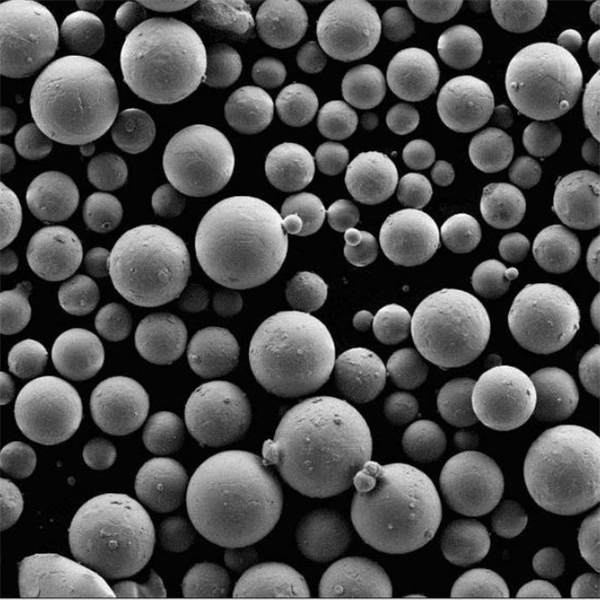
Specyfikacje, rozmiary, gatunki i standardy Ni4Ti3
Understanding the specifications, sizes, grades, and standards is crucial for selecting the right Ni4Ti3 model for your needs. Here’s a detailed table summarizing these aspects:
| Specyfikacja | Szczegóły |
|---|---|
| Zakres wielkości cząstek | 2-60 microns |
| Poziomy czystości | 99.7% to 99.95% |
| Klasy standardowe | ASTM F2063, ISO 5832-11 |
| Dostępne formularze | Powders, wires, rods, sheets |
| Metody produkcji | Gas atomization, Plasma atomization, Mechanical alloying |
| Certyfikacja | ISO 9001, ISO 13485 (for medical applications) |
Table: Specifications, Sizes, Grades, and Standards of Ni4Ti3
| Parametr | Opis |
|---|---|
| Zakres wielkości cząstek | 2-60 microns |
| Poziomy czystości | 99.7% to 99.95% |
| Klasy standardowe | ASTM F2063, ISO 5832-11 |
| Dostępne formularze | Powders, wires, rods, sheets |
| Metody produkcji | Gas atomization, Plasma atomization, Mechanical alloying |
| Certyfikacja | ISO 9001, ISO 13485 (for medical applications) |
Suppliers and Pricing Details of Ni4Ti3
Finding reliable suppliers and understanding the pricing details is crucial for sourcing Ni4Ti3. Here’s a detailed table of some prominent suppliers and their pricing details:
| Dostawca | Lokalizacja | Zakres produktów | Cena (za kg) | Informacje kontaktowe |
|---|---|---|---|---|
| Johnson Matthey | USA | Ni4Ti3-100, Ni4Ti3-200 | $500 – $700 | www.matthey.com |
| ATI Specialty Alloys | USA | Ni4Ti3-300, Ni4Ti3-400 | $600 – $800 | www.atimetals.com |
| Daido Steel Co., Ltd. | Japonia | Ni4Ti3-500, Ni4Ti3-600 | $550 – $750 | www.daido.co.jp |
| Zaawansowane proszki i powłoki | Kanada | Ni4Ti3-700, Ni4Ti3-800 | $580 – $780 | www.advancedpowders.com |
| Technologia Carpenter | USA | Ni4Ti3-900, Ni4Ti3-1000 | $600 – $800 | www.cartech.com |
| Sandvik Materials Technology | Szwecja | Różne stopnie | $550 – $770 | www.materials.sandvik |
Table: Suppliers and Pricing Details of Ni4Ti3
| Dostawca | Lokalizacja | Zakres produktów | Cena (za kg) | Informacje kontaktowe |
|---|---|---|---|---|
| Johnson Matthey | USA | Ni4Ti3-100, Ni4Ti3-200 | $500 – $700 | www.matthey.com |
| ATI Specialty Alloys | USA | Ni4Ti3-300, Ni4Ti3-400 | $600 – $800 | www.atimetals.com |
| Daido Steel Co., Ltd. | Japonia | Ni4Ti3-500, Ni4Ti3-600 | $550 – $750 | www.daido.co.jp |
| Zaawansowane proszki i powłoki | Kanada | Ni4Ti3-700, Ni4Ti3-800 | $580 – $780 | www.advancedpowders.com |
| Technologia Carpenter | USA | Ni4Ti3-900, Ni4Ti3-1000 | $600 – $800 | www.cartech.com |
| Sandvik Materials Technology | Szwecja | Różne stopnie | $550 – $770 | www.materials.sandvik |
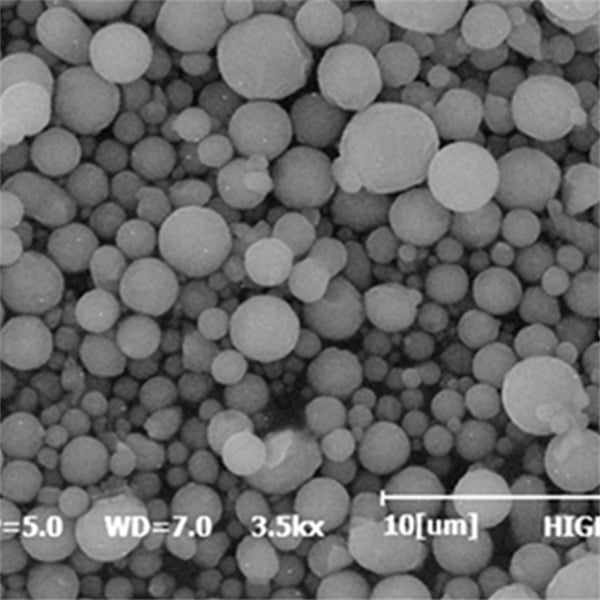
Porównanie Ni4Ti3 Models: Pros and Cons
To help you choose the right Ni4Ti3 model for your application, here’s a comparative analysis of the different models, highlighting their pros and cons:
| Model | Plusy | Wady |
|---|---|---|
| Ni4Ti3-100 | Wysoka czystość, drobny rozmiar cząstek | Wyższy koszt |
| Ni4Ti3-200 | Ideal for aerospace, good mechanical properties | Moderate availability |
| Ni4Ti3-300 | Enhanced strength, suitable for industrial use | Trudne w obróbce |
| Ni4Ti3-400 | Ultra-fine particles, excellent for electronics | Ograniczone do określonych zastosowań |
| Ni4Ti3-500 | Superior fatigue resistance, energy applications | Higher manufacturing complexity |
| Ni4Ti3-600 | Optimized for 3D printing, high-quality output | Requires advanced equipment |
| Ni4Ti3-700 | Extreme precision, finest particle size | Bardzo wysoki koszt |
| Ni4Ti3-800 | Excellent corrosion resistance, marine use | Availability might be limited |
| Ni4Ti3-900 | Balanced properties, versatile use | Not the best in any single property |
| Ni4Ti3-1000 | Cutting-edge research applications, highest purity | Extremely high cost, limited to R&D |
Najczęściej zadawane pytania
1. What is Ni4Ti3 used for?
Ni4Ti3 is used in a variety of applications including medical devices, aerospace components, consumer electronics, industrial robotics, automotive parts, and energy sector components. Its unique properties such as shape memory effect, superelasticity, and biocompatibility make it suitable for these high-tech applications.
2. How is Ni4Ti3 manufactured?
Ni4Ti3 is typically manufactured through processes such as gas atomization, plasma atomization, and mechanical alloying. These methods ensure high purity and precise control over particle size, which are crucial for achieving the desired properties of the material.
3. What are the benefits of using Ni4Ti3 in medical devices?
The benefits of using Ni4Ti3 in medical devices include its high biocompatibility, flexibility, and corrosion resistance. These properties make it ideal for implants and devices that interact with human tissue, such as stents and orthodontic archwires.
4. Can Ni4Ti3 be used in 3D printing?
Yes, certain models of Ni4Ti3, such as Ni4Ti3-600, are optimized for additive manufacturing or 3D printing. These models provide high-quality, precise output suitable for custom manufacturing and complex components.
5. What are the limitations of Ni4Ti3?
Podczas gdy Ni4Ti3 offers numerous advantages, it also has limitations such as higher cost, difficulty in machining, and limited availability. Additionally, it requires precise control during manufacturing to achieve the desired properties, which can increase production complexity and cost.
6. How does Ni4Ti3 compare to other Nickel Titanium alloys?
Compared to other Nickel Titanium alloys, Ni4Ti3 provides superior control over shape memory and superelastic properties due to its specific composition and phase structure. This makes it particularly valuable for applications requiring precise performance, such as medical and aerospace industries.
7. Are there any environmental concerns with using Ni4Ti3?
Ni4Ti3 is generally considered safe for use in various applications, including medical and industrial fields. However, like any material, proper handling and disposal practices should be followed to minimize environmental impact.
8. What are the best practices for sourcing Ni4Ti3?
To source Ni4Ti3 effectively, it’s important to work with reputable suppliers who provide high-quality material and adhere to industry standards. Checking certifications such as ISO 9001 and ISO 13485 can also ensure the material meets required specifications for your application.
In conclusion, Ni4Ti3 stands out as a critical material in the field of advanced technologies, offering unparalleled properties and versatility. From medical devices to aerospace components, its unique characteristics drive innovation and performance. Understanding its composition, properties, and applications, along with the advantages and disadvantages, can help in making informed decisions about its use. Whether you are in the medical, aerospace, or industrial sector, Ni4Ti3 opens up new possibilities for creating more efficient, durable, and reliable products.

